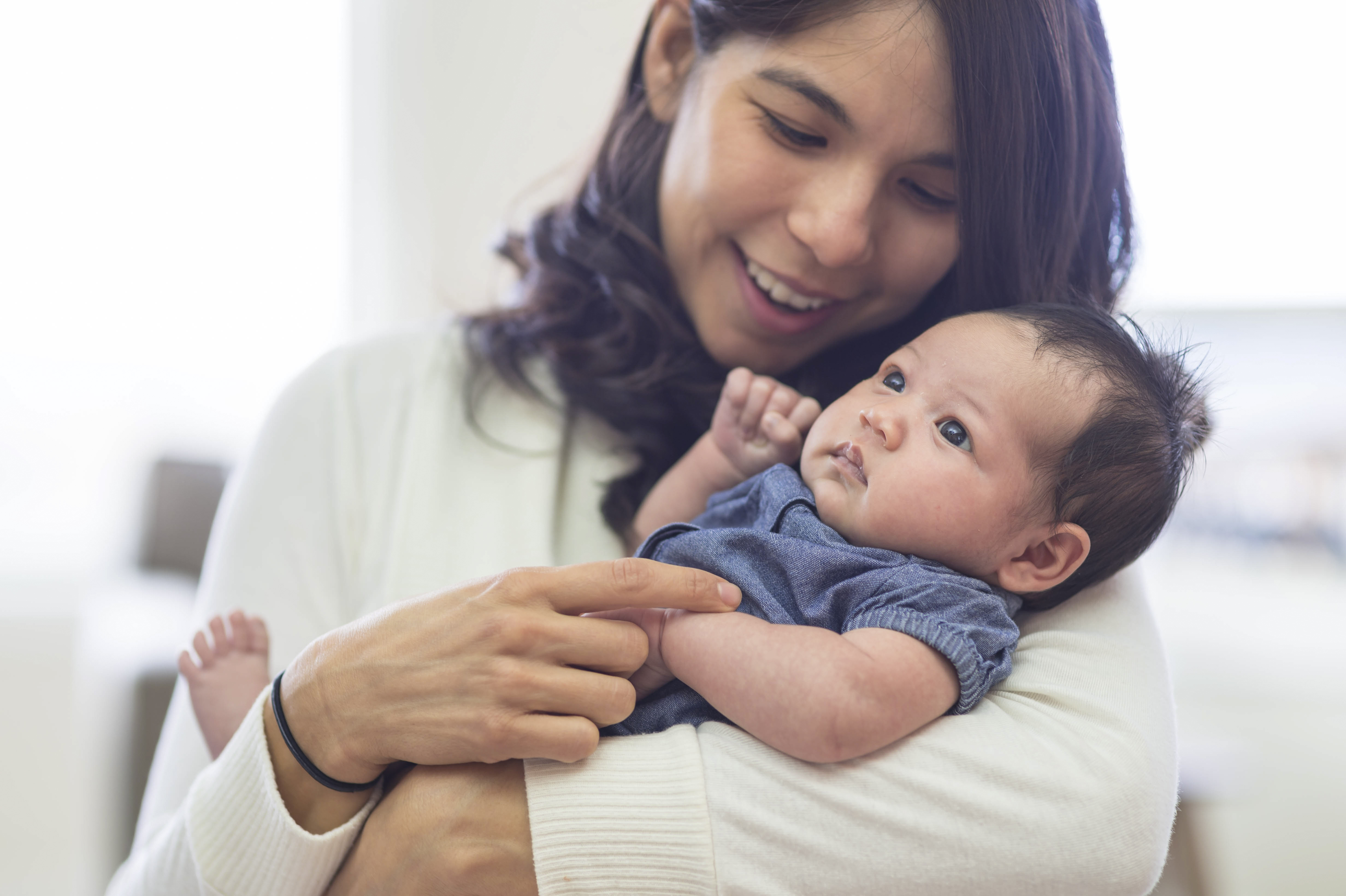Interacting with your baby is important to their cognitive development. Your baby's brain will undergo rapid development over the first six months of life.
Months one and two
Babies love looking at people’s faces, especially their parents’. Six-week-old babies are able to imitate the facial gestures of another person, such as sticking out their tongue or opening their mouth in an O-shape. Imitation will become a crucial way for the baby to learn many different types of behaviour throughout infancy and beyond.
Your baby’s ability to process information is improving and they begin to understand the relationships between certain actions. For example, they have figured out that if they are placed in the breastfeeding position, it means that they are going to be fed. Your baby may signal that they have learned this by stopping their crying when they are put in that position. This is an example of contingency learning.
For the first few months, if your baby is playing with a toy and you then hide it under a cloth, they will not try to push the cloth away to try to retrieve the toy. Traditionally, it was believed that babies do not understand that objects continue to exist whether they can see them or not. Some researchers now believe that such young babies fail to look for the hidden toy because they simply forget about the toy and turn their attention to something else.
When you play with your baby, keep in mind that a real live social partner is much better than a toy or a screen.
Months three and four
Contingency learning remains very important to the interaction between you and your baby. Your baby is sensitive to whether you respond to their communication signals in a caring and dependable, or contingent, way. For example, if you smile when your baby smiles, they will realize that their own smile is associated with yours. If you talk when your baby makes sounds, they will learn that their own "talking" is associated with your "talking back."
Your baby’s spatial perception is improving. They are starting to realize whether a toy is close enough for them to reach, or halfway across the room.
Your baby will become quite fascinated with their hands, and what they can do with them. They spend a lot of time watching their hands as they move them toward objects. However, their coordination continues to be quite limited and they cannot move their thumb independently of their other fingers. Therefore, they still cannot pick up toys very well at this point.
When your baby sees a favourite toy or something else they like, they will start to breathe fast and move their arms and legs excitedly. At this age, your baby will also enjoy being pulled to the sitting position and propped up.
Months five and six
Your baby’s depth perception is improving. They now realize that they can follow an object if it leaves their line of vision. They have figured out that they can move their head to continue to watch the object. They can accurately look for and track an object that they can hear moving.
If you are looking at something, your baby will try to figure out what you are watching in order to learn more about the world around them. They will start to make links between what you are looking at and the words you use to describe them.
Your baby is starting to let you know what they like and don’t like. If they are eating solids and you offer them something to eat that they don’t want, they will turn their head away. Also, if they want to do something but have not yet learned how to do it, they will let you know how frustrated they feel.
Your baby will become increasingly capable of remembering a goal or desire. They may easily become frustrated if, for example, a toy is removed from them. Around this age, if your baby is playing with a toy and you hide it with a cloth, they will try to move the cloth in an attempt to retrieve the toy.
Your little one will continue to imitate your actions and emotions. If you do something like cough or bang a drum, they may try to do it too. If you smile, they may smile. If you frown, they may look sad, or they may even start to cry.
See Learning to think: The next six months for information on your baby’s cognitive development in months seven through 12.

